- Home
- Iris Murdoch
Jackson's Dilemma Page 7
Jackson's Dilemma Read online
Page 7
Standing apart, they held hands, surveying each other, then releasing their hands and becoming sombre.
‘So what happened to Marian, do you know anything?’
‘We know nothing,’ said Benet. ‘I was wondering if you had any clues or ideas -’
‘You don’t think I’m harbouring her?’
‘Of course not!’ said Benet. He had however now reached the stage of anything being possible. Women take refuge with women. He could at least attempt to picture the degree of despair which must have occasioned Marian’s missive. Surely she must be with someone - unless some terrible thing had occurred.
Anna, reading his mind, said, ‘I might have taken her in, but I haven’t!’
‘She was very fond of you.’
‘And I of her. I have no idea where she might be. I have been so long away.’
‘Of course - Oh Anna, it is so dreadful -’
‘What did the letter say - just that she had decided not to get married -?’
‘Yes. That - and saying sorry.’
‘What a shock. Poor Edward. Look, let us sit down.’
They left the window and sat upon the big red velvet settee. Benet looked up at the elephant. He turned to her saying:
‘It was so kind of you to come for the - we are all hoping that now you will stay.’
‘I might stay, yes, but -’
‘Really, stay, and live here, in your own house, not go back to France?’
‘Yes, of course I’d live in France too - but I don’t know. I might rent the house again later on.’
‘You are as beautiful as ever. I love your green dress.’
Anna laughed. ‘Do you mind if I smoke? I know you don’t.’ She reached out for the packet of cigarettes which was lying in the large blue glass bowl upon the long low table in front of them. She lit the cigarette, trembling a little and smiling. She said, ‘Would you like a drink, would you like to stay to lunch?’
He thought, she will soon be in tears, I mustn’t stay, anyway I can’t stay. ‘I’m sorry I can’t - but could you come and have dinner with me tonight?’
‘No. I’m afraid I’ve got another -’
‘Oh Anna, we were all so happy, and now it’s pure hell -’
‘Are you sure you - all right - but I want to see you again very soon. I may want your advice.’ ,
‘Oh heavens — I would do my best! Now I must go and see Edward, poor devil.’
Anna, who used previously to ‘put up’ her hair in some neat and ingenious mass, now had it undone, tossed back, a smooth rill of straight pale-yellow hair reaching almost to her waist. She raised her hand now to her smooth clear brow, as if enquiring what her hair was up to. Benet gazed at her. Owen, who admired her and had painted her, said she had the calmest woman’s face he had ever seen. Her face, devoid of make-up, displayed the faintest glowing shade of pink in her cheeks and lips. Her eyes were pale blue, her lips and eyes expressed often a detached, perhaps wistful, amusement. She could also look pensive, and gentle, and far away. Now, holding her cigarette firmly in her nicotine-stained right hand, she lifted her left hand to the neck of her dress, displaying unconsciously her plain golden wedding ring and diamond and ruby engagement ring which Benet suddenly remembered from the remote past, her wedding, his few and brief visits to her in France, she did not care for visitors; and in that moment he felt a sudden urge to speak of Lewen - and then he thought, she may not want to stay here, where Lewen’s dying was so terrible. No wonder she ran away to France.
She said, ‘Let us hope for Marian. What can a girl do in such circumstances? She has travelled, hasn’t she? She is probably recovering somewhere and feeling relieved. She has realised she just doesn’t want to! Everyone will forgive her, even Edward will. They may even come together again later on, why. not. Do you think?’
‘I don’t know, Anna, I just don’t know - I’m just afraid she’ll - I’m just afraid. Look, I must go.’ As they rose and moved towards the door he said, ‘Where are your pictures? Still packed away somewhere, I suppose, until you decide what to do. I’d like to see that one that Owen made of Lewen.’
‘You will come, dear Benet, again and bring Owen with you.’
As they moved into the hall Benet asked, ‘How is the boy? Is he here?’
‘Bran? Oh yes, he’s here, I’ll call him.’
‘Oh, don’t disturb him.’
‘Bran, Bran, come and see Benet!’
After a scuffling in the front room, a boy dressed in long black narrow trousers and a blue shirt appeared. His copious curly hair was dark amber, his eyes a pale brown, his lips red. He gazed at Benet with suspicion.
‘Hello, Bran,’ said Benet, moving towards him, ‘How you have grown up!’ He began to reach out his hand, but quickly withdrew it as the child showed no sign of taking it. Benet thought, oh dear, he wants to go back to France!
Anna said, ‘He wants to go back to France. But we’ll see - it’s the school, you know.’
‘He looks like his father,’ said Benet.
‘You think so? Yes - indeed - ’
Bran looked at his mother, then quietly receded into the front room and closed the door.
Awkwardly Benet said, ‘Perhaps he’ll continue Lewen’s book - is he interested in history?’
‘He’s interested in everything, he’s extremely clever, but a bit withdrawn.’
Anna opened the front door. ‘Well, goodbye, dear Benet - I do hope you’ll find - by the way, thank you so much for lending us Jackson, he fixed the thing in no time. Bran took to him at once.’
In Owen’s studio Mildred, paying no attention to his stern words, had arrived. Owen, opening the door to her, had returned, leaving her to close the door, moodily to his easel. He was, she saw, ‘messing about’ as he would put it, with some favourite mysterious subject. This subject it appeared was ‘Man stealing a Cat’, a subject which he claimed to have collected from some ancient Japanese tale. The man, unable to obtain the favours of a certain lady, has stolen her cat. Owen’s version sometimes contained a Japanese flavour, and the proximity of the lady was hinted at though not seen. Interesting aspects of the pictures were the varying expressions upon the faces of the man and the cat. Sometimes the man looked frightened, the cat recalcitrant, sometimes both man and cat looked pleased as if joking, or else the man was wearing an evil grin, and the cat was struggling, or the faces of both were demonic.
After a silence Mildred said, ‘He’s going to kill the cat. What’s that lacy white stuff in the corner?’
‘The lady’s bedroom.’
‘Are we never to see her?’
‘She is already dead, strangled.’
Accepting this information Mildred began to pace to and fro in the large room, her skirt swinging.
‘Where are your angels?’
‘I shall return to angels and to terrified Madonnas. And you are going to India to live in an ashram in the Himalayas and wear a sari and squat upon the ground.’
‘I should have gone there long ago,’ she said.
‘Well, why not go there now, I’ll pay your fare. You have been bewitched by Uncle Tim.’
The downstairs bell rang. ‘That is Benet,’ she said and left the room and ran down the stairs.
Benet was not displeased to find Mildred, where she quite often was, with Owen.
‘Oh Mildred - no news? I have none.’ He followed her up the stairs.
Owen, still sitting at his easel, put on the slit-eyed cynical look with which he always greeted Benet. ‘So you are all running madly about and enjoying every moment?’
Benet walked across the room, picked up two chairs and brought them over, one for Mildred and one for himself. He said, ‘It is something to do.’
‘At least you can comfort the bereaved.’
‘I rang up Rosalind and I am going to see her. Edward’s telephone doesn’t answer. I have been to see Anna -’
‘Why her - did you think she had swallowed the girl? How is she anyway, is she going graciou
sly to stay with us?’
‘I hope so. I don’t know. I think she wants to stay but Bran doesn’t.’
‘I don’t blame him. I wish I’d settled down in France.’
‘Did you see the child?’ said Mildred.
‘For a moment. He was rather reticent.’
‘Just like Lewen,’ said Owen.
‘We are all in a state of shock,’ said Mildred. ‘We have to run about, as you put it, so as not to break down - there are so many awful possibilities.’
‘We have been through that,’ said Owen, ‘we must at least now get on with our work. Probably she is sitting somewhere laughing and gloating, she may have gone to Brighton.’
‘We must comfort each other anyway,’ said Mildred.
Benet said, ‘Yes, indeed. I was wondering if you would like to have dinner with me this evening? I just don’t feel like being alone.’
‘Yes, of course we will be with you,’ said Mildred. ‘That’s all right, isn’t it, Owen?’
‘I hope Rosalind will come, she wasn’t sure when I rang.’
‘And of course you asked Anna,’ said Owen.
‘Yes, but she can’t come. It’s rather short notice to rustle up guests.’
‘I do hope Edward won’t just seclude himself in misery,’ said Mildred.
‘Perhaps he’ll shoot himself,’ said Owen. ‘That would add to our amusement.’
‘You must invite Tuan too,’ said Mildred. ‘And why not Alexander and Elizabeth as well?’
Benet had taken a taxi from his house to Anna’s house near Sloane Square. From here he had taken a taxi to Owen’s house. Now he was taking another taxi to Rosalind’s little flat off Victoria Street. He rarely drove his car in London. As he sat in the taxi he felt a pang of painful miserable guilt. He had felt a brief momentary joy with Anna, he had let himself be amused by Owen. Now he was thinking about Rosalind and about Marian. Of course he had actively been thinking about Marian all the time, Marian was what mattered, what filled his mind, what filled their minds. Just now he was also thinking of Rosalind and how he might support and console her. But he knew that beyond these particular matters there was a dark horror which he must not, and indeed could not, thrust away. Marian might be dead, drowned, kidnapped, mad with misery, mad with terror. The end of happiness, her happiness, Edward‘s, Rosalind’s, her mother’s, and mine, thought Benet, because in some way it must have been my fault! Her life is ruined, perhaps his. And now Rosalind.
He paid the taxi man. He rang the bell of the third floor flat. He pressed open the front door and began to climb. He heard Rosalind’s door opening above - and the pain now came back and the fear, the awfulness of the situation, its bottomless void, suddenly something out of Shakespeare, the dreadful peril of the Bard himself. He heard her door opening above and thought, I will recall this.
Rosalind held the door open, then when Benet entered, shut it and leaning against it they hugged each other with closed eyes. Then Benet, holding her by the wrist, led her over to the window where a long seat covered with cushions gave a view down the busy little street dusty with sunshine and a narrow glimpse of the great Catholic Cathedral. Here they sat, turned, facing each other, Rosalind with her damp face and red eyes. Benet, suddenly near to tears, said in a gruff awkward voice,
‘Oh don’t grieve so, dear Rosalind, Marian is safe and well, I am sure.’ He cleared his throat and went on, ‘She will come back to us, back to you, very soon - she has acted rightly, she has done something perfectly just and proper, something which must have needed a great deal of courage -’
‘You mean sending the note, then, at last -’
‘A less courageous person would have felt it was already too late, they would have been ashamed, they would think, well, I don’t want this, I know I shall hate it, it’s all wrong, but I’m so involved now I’ll have to put up with it, and I know that later on I shall keep on wishing I’d had the nerve to say no, even at the last minute -’
Rosalind, her lips apart, was staring at Benet. ‘You think that? But why didn’t she do it earlier on, find out earlier on, she had plenty of time -? Of course she was confused, and you were all pressing her so -’
‘We weren’t pressing her -’ We were pressing her, he thought, we kept telling her how happy she would be, how happy they both would be, such a perfect couple - he went on,
‘It was just when she came to it, to the reality of it, she just didn’t really want to marry Edward, she wanted to feel free, and not to have all those responsibilities -’
‘You mean the house -’
‘Well, yes, but Edward himself, being married to him for ever, after all marriage is -’
‘Edward himself - perhaps she found out something -’
‘What do you mean, something disagreeable or -?’
‘Oh dreadful, how dreadful it all is -’
Benet thought, I’m making a mess of this, I’m on the wrong tack. Tim would have known what to do. He said, ‘Dear Rosalind, don’t weep. We shall see soon what is the better for both of them. I just meant that marriage is a great responsibility and one has to think carefully even up to the last moment—’
‘But do you also think that they may soon make it up and then secretly get married somewhere, with no parsons and no bridesmaids, and come back to surprise us all?’
‘That is certainly possible too,’ said Benet. In fact he had, among many possibilities, envisaged this one also. ‘We must just be calm and wait. Marian will come back to us, she will probably send us a signal in a day or two -’
‘If she isn’t dead - perhaps she is dead - I can see her - dead - ’
‘Rosalind, stop all this! You must be brave and just wait quietly—I feel sure we shall have good news soon, perhaps even in an hour or two, and you will know at once -’
‘There is no good news, for her - or for me - ever -’
‘Rosalind, please - ’
‘All right, all right, I’m sorry, dear Benet - I’m so glad you came to see me - I am just talking nonsense to you.’
‘Dear, dear child, do not cry - I love you, we all love you, your life is ahead - and really, whatever - all will be well with Marian too -’
‘It is very kind of you, but - I think I may lie down for a while -’
‘Yes, yes, lie down, I’ll go - but please, do come to dinner this evening at my place, will you? Owen and Mildred will be there - ’
‘And Edward?’
‘I don’t know, I can’t get in touch with him, he may have gone back to Hatting, anyway do come -’
They stood up. He kissed her hot cheek. She was taller than Marian and almost as tall as Benet.
As he was walking towards Victoria Station Benet renewed his guilty misery. Obviously of course, he should have thought of it at once in the gallery. Poor Rosalind was in love with Edward! More hell. He had been intending to go home, but decided now to make one further assault. He took a taxi to Notting Hill, checking the taxi man a little short of Edward’s house. He walked slowly on. There was something conspicuous, a ladder leaning against the front of the house. He looked at it, avoided it, and mounted the steps to the front door. He rang the bell, waited, rang again, shouted through the letter box, then stood back. There was no way of getting into the garden. He felt an urge to climb the ladder and look in at the window. What was he imagining? Edward dead upon the floor? He walked hastily away. Now he felt reluctant to go home. He took yet another taxi to Brompton Road and ordered a modest lunch in a small restaurant but found he could scarcely eat. To walk somewhere, he walked to Harrods and looked at some expensive ties, connecting them somehow with Edward whom he senselessly expected to see as he looked around upon the numerous shoppers. He was beginning to experience a loss of identity which now came upon him at times after Tim’s death. He left Harrods and walked up across the road into the Park where he strolled along as far as Peter Pan and watched people tossing bread to frenzied swans, ducks, geese, coots, seagulls. Other birds were more cautiously present, herons,
even cormorants. This scene and a glance at Peter sent Benet home at last. Here he telephoned Elizabeth Loxon, who said she’d love to come to dinner, but she was engaged that night, he rang Priscilla Conti who had left a message that she had gone back to Italy, he rang Tuan who did not reply, Alexander was not at home, he rang Charles Moxon at his office, who said sorry he and Jennie were going to the opera, he tried Marian’s number in vain of course. Exhausted he lay down for a moment upon his bed and instantly fell into a dream that Penndean was in flames.
At dinner of course they had talked about Marian but with silent consent had left this subject for the moment and started up a lively argument about Sonya in War and Peace. Owen, though seriously or otherwise was not clear, insisted that Tolstoy, all the way through, had clearly portrayed her as a silly girl, doing what she was told, readily seen through by Nicholas who promptly ditched her, and at the end being rightly described by Natasha as just a moronic cat, humbly attaching herself to the family. This interpretation enraged Mildred, who passionately sided with her as poor brave intelligent selfless Sonya, meanly dropped by block-headed Nicholas, and totally misunderstood by silly mean ungrateful Natasha, who is at the end properly labelled by Tolstoy as stupid. After all, Mildred insisted, faithful loving Sonya had rescued faithless Natasha from total disaster by saving her from eloping with ghastly Kuragin. At the end, Mildred explained, Sonya, sitting tired and ignored, dispensing tea as a sort of servant, is a picture of silent selfless virtue! Tuan, who had now turned up, had sided with Mildred. Benet perversely held that Tolstoy, at the end, identifying himself nobly with Pierre, despising both the girls and Nicholas, was of course delighting in Prince Andrew’s young son as a blameless icon of the future of Russia. Owen, always ready to tease Jackson, suddenly asked his opinion. Jackson, flitting to and fro from the kitchen, smilingly said he sided with Miss Sonya throughout. Mildred laughed, Benet was irritated. The argument then turned to whether the Aspern Papers had been stolen from Pushkin’s Queen of Spades by Henry James when chatting with Turgenev. After that they returned to the hopeless topic of where was Marian. Then Tuan mentioned that he must go home and quietly slipped away. ‘Poor boy can’t take the drink,’ said Owen.

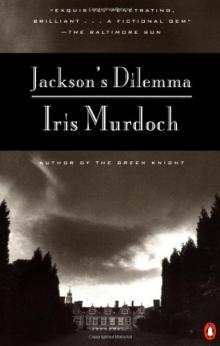 Jackson's Dilemma
Jackson's Dilemma The Flight From the Enchanter
The Flight From the Enchanter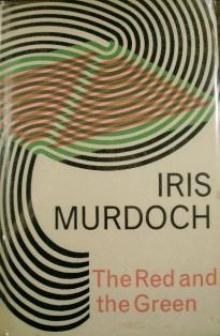 The Red and the Green (Vintage Classics)
The Red and the Green (Vintage Classics)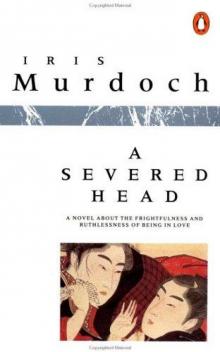 A Severed Head
A Severed Head The Black Prince
The Black Prince The Nice and the Good
The Nice and the Good The Unicorn
The Unicorn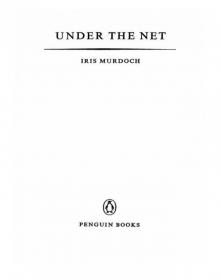 Under the Net
Under the Net The Italian Girl
The Italian Girl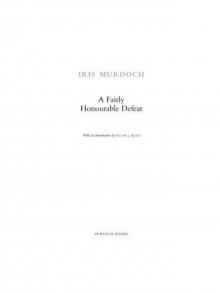 A Fairly Honourable Defeat
A Fairly Honourable Defeat An Accidental Man
An Accidental Man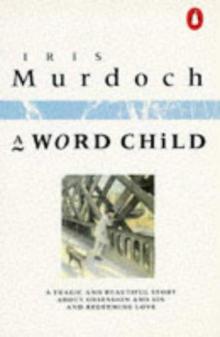 A Word Child
A Word Child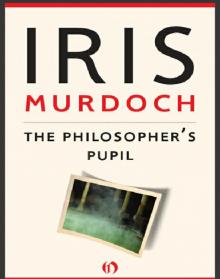 The Philosopher's Pupil
The Philosopher's Pupil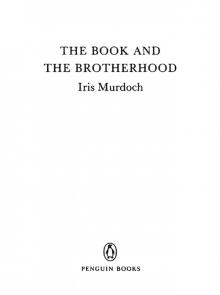 The Book and the Brotherhood
The Book and the Brotherhood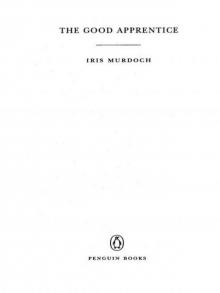 The Good Apprentice
The Good Apprentice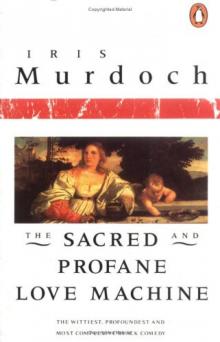 The Sacred and Profane Love Machine
The Sacred and Profane Love Machine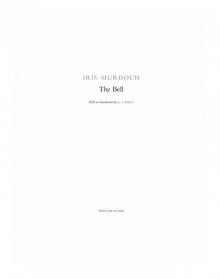 The Bell
The Bell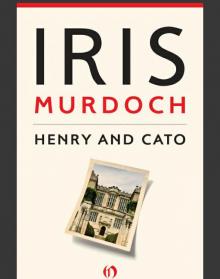 Henry and Cato
Henry and Cato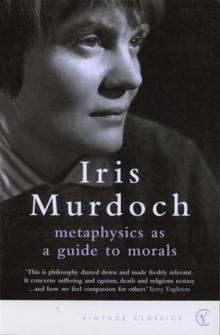 Metaphysics as a Guide to Morals
Metaphysics as a Guide to Morals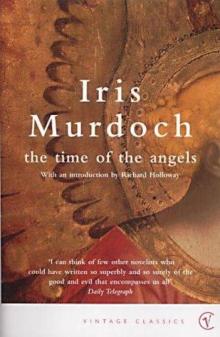 The Time of the Angels
The Time of the Angels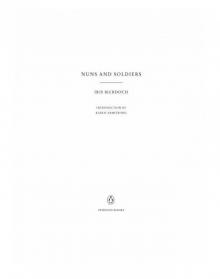 Nuns and Soldiers
Nuns and Soldiers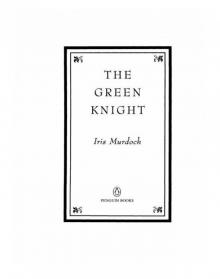 The Green Knight
The Green Knight The Sea, the Sea
The Sea, the Sea Sartre: Romantic Rationalist
Sartre: Romantic Rationalist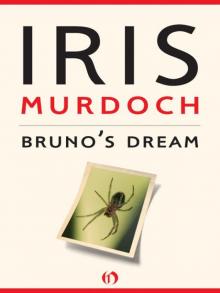 Bruno's Dream
Bruno's Dream An Unofficial rose
An Unofficial rose Sartre
Sartre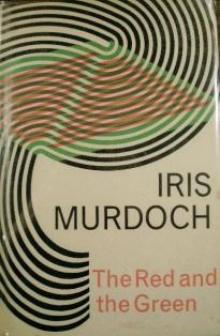 The Red and The Green
The Red and The Green